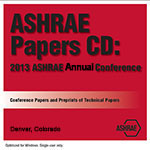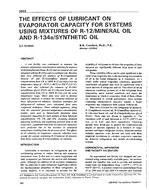In this study, an energy balance and uncertainty analysis was performed on a standard chilled water cooling coil mounted in a commercial Air Handling Unit operating under typical conditions with a conventional PID loop control. Two different sets of relative humidity transmitters and temperature sensors (high and low accuracy) were evaluated for measuring relative humidity and temperature of the moist air entering and exiting a cooling coil. The impact of the different errors in these sensors and installation on the uncertainty in the energy calculation is presented. In addition, the affects of the transient behavior inherent in the cooling coil with respect to the energy balance was evaluated. This study gives insight to how an energy balance test coupled with an uncertainty analysis could be used to verify the cooling coil system performance and instrumentation output. Experimental results showed that the transient behavior inherent to the cooling coil had a negligible affect on the energy balance calculations and that by employing high accuracy instrumentation and careful installation, expected energy balance results could be attained.
Units: Dual
Citation: ASHRAE Transactions, vol. 115, pt. 2, Louisville 2009
Product Details
- Published:
- 2009
- Number of Pages:
- 13
- File Size:
- 1 file , 890 KB
- Product Code(s):
- D-LO-09-064


